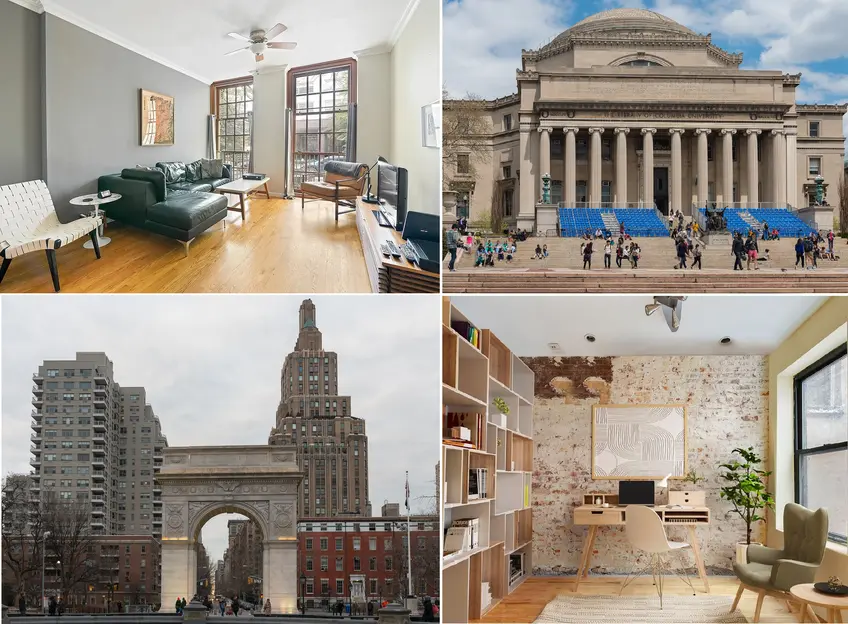 Much nicer than the dorm, and it could prove a better investment in the long run.
Much nicer than the dorm, and it could prove a better investment in the long run.
With New York City rents reaching all-time highs (in Manhattan, median monthly rents are now more than $4,370), few college students are in the position to rent without roommates, or the help of a well-heeled parent or guardian. But is it in the best interest of parents and guardians to rent rather than buy in the current market?
In this article:
Renting vs. Buying
To determine whether it is better to rent or buy for a college-age child, it is important to consider several factors, some of which are unique to New York City’s housing market.
Monthly Overhead
The first and most important factor is to consider your monthly overhead. With rents at all-time highs, owning may result in lower monthly housing costs, but it all depends on the specific situation. For example, in New York City, it is not unusual for one’s building fees (i.e., condo fees and taxes or coop fees) to be as high or higher than one’s monthly mortgage payment. As a result, the first step is to consider whether your monthly overhead (mortgage and fees) will be higher, lower, or about the same if you opt to buy versus rent. That said, even if your monthly overhead is somewhat higher, buying may be a wiser long-term investment.Financing
If you don’t require financing, in the current market, your monthly overhead will likely be lower if you buy rather than rent unless the building has exceptionally high fees. Given the rapid appreciation of properties in recent years, buying is also likely to pay back. According to this calculator, the average $800,000 property purchased in the New York City metro area appreciated 34 percent between Q4 2019 and Q2 2023.However, if you require financing, renting still may be a better option. With fixed-term mortgage rates now well over 6 percent, you may or may not end up with lower monthly overhead. In addition, securing financing on a second property is likely to pose additional challenges, including challenges many out-of-state residents are unlikely to anticipate.
First, you’ll need to prove creditworthy to purchase a second home. Second, be prepared to bring more money than average to any deal. As a rule, most York City coops expect buyers to put 20-30 percent down. However, since coops are free to make up their own rules, don’t assume you’ll be treated like any other buyer. If you’re purchasing a unit for a college-age child, you may be asked to bring more money to the deal.
On a related note, don’t assume that you’ll be able to tap into your existing home equity to come up with a down payment. While it is common to use one’s existing home equity to purchase a second home (e.g., a cottage or ski chalet), in New York City, getting approval from a lender is just the first step. This is especially the case if you’re attempting to buy a coop; your financials will be carefully scrutinized by the board. If they don’t like what they see (e.g., you’ve tapped into the equity on your existing home for a down payment), your application may be rejected.
On a related note, don’t assume that you’ll be able to tap into your existing home equity to come up with a down payment. While it is common to use one’s existing home equity to purchase a second home (e.g., a cottage or ski chalet), in New York City, getting approval from a lender is just the first step. This is especially the case if you’re attempting to buy a coop; your financials will be carefully scrutinized by the board. If they don’t like what they see (e.g., you’ve tapped into the equity on your existing home for a down payment), your application may be rejected.
Closing Cost
Another consideration is the high cost of closing on a condo or coop in New York City. As a rule of thumb, closing costs tend to run anywhere from $8,000 to $10,000, but they can be much higher. Factors that impact closing costs include the type of unit (e.g., if you’re purchasing a condo, you’ll need to pay both city and state mortgage recording taxes, which are taxes only levied in a handful of other U.S. states and no other U.S. cities). However, even some coop units come with higher closing costs (e.g., if you’re purchasing a sponsor unit, you’ll also be slapped with city and state transfer taxes). Luxury units (e.g., those priced over $1 million) also come with additional taxes that are typically passed along to the buyer.Length of Ownership
A final consideration, which is especially important when buying for a college-age child, is the length of ownership. In the past, renting was generally considered better than buying if you were planning to be in New York City for less than ten years. Given the rapid appreciation of homes in recent years, however, this may no longer hold. Some things to keep in mind before you receive the keys (Pixabay)
Some things to keep in mind before you receive the keys (Pixabay)
Potential Obstacles When Buying for College-Age Children in New York City
Would you like to tour any of these properties?
Just complete the info below.
Or call us at (212) 755-5544
If you’ve considered all the above factors and decided that buying does make sense, there is still one more obstacle you’ll need to overcome—finding a condo or coop willing to let your college-age child move in. In most condos and nearly all coops, you’ll need to convince the board that your college-age child will make a good tenant, and this may be easier said than done.
Stopping short of outright discrimination (e.g., rejecting a tenant based on their race, gender, or sexuality), coop boards are free to pick and choose their tenants. The best way to avoid problems at the application stage is to read all listings carefully. Look for language that clearly states the board permits “parents buying for adult children.” Any experienced real estate agent will also be able to direct you to buildings with boards known to welcome parents purchasing for adult children and, more importantly, steer you away from buildings where the practice is strictly forbidden.
Stopping short of outright discrimination (e.g., rejecting a tenant based on their race, gender, or sexuality), coop boards are free to pick and choose their tenants. The best way to avoid problems at the application stage is to read all listings carefully. Look for language that clearly states the board permits “parents buying for adult children.” Any experienced real estate agent will also be able to direct you to buildings with boards known to welcome parents purchasing for adult children and, more importantly, steer you away from buildings where the practice is strictly forbidden.
Starter 2-beds under $1M that Permit Parents Buying
The Coronet, #3E (Compass)
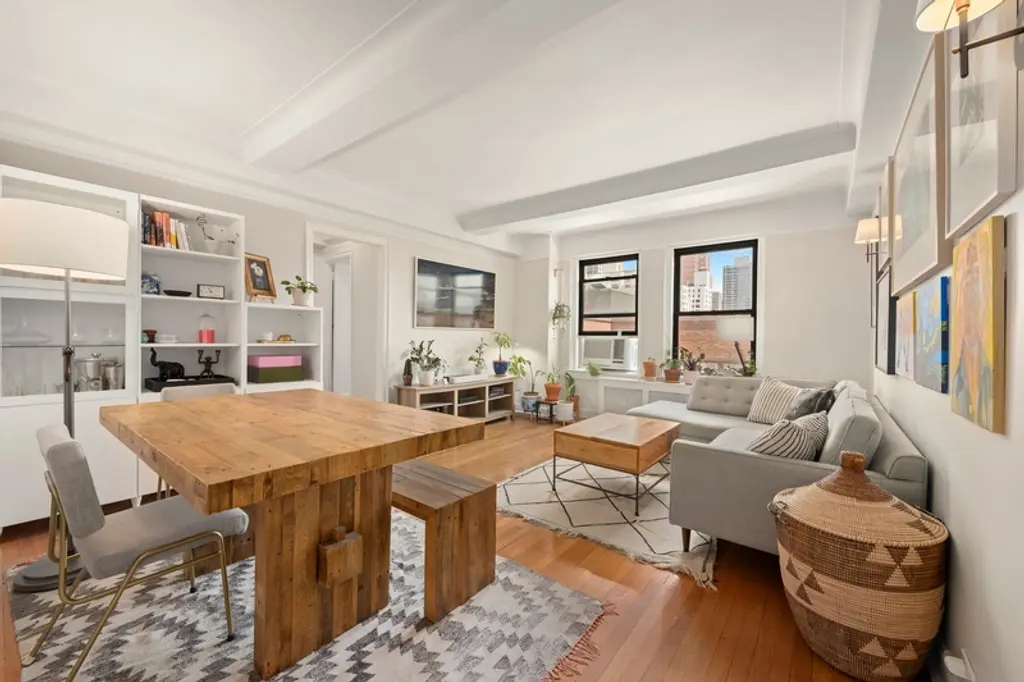
425 East 86th Street, #7F (Prevu Real Estate LLC)
402 East 74th Street, #4B (Compass)
345 East 57th Street, #16B (Compass)
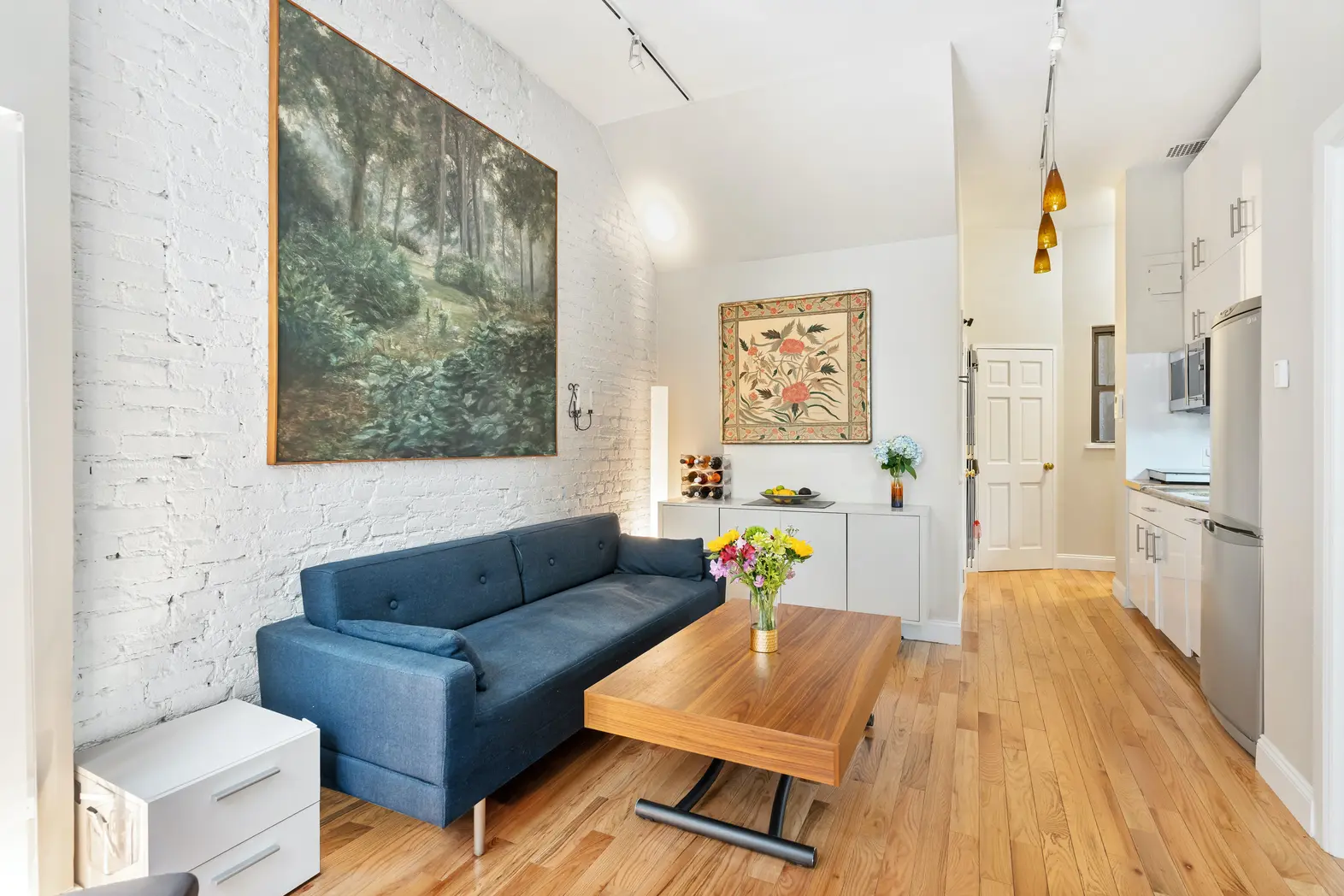
430 East 87th Street, #1CD (Serhant LLC)
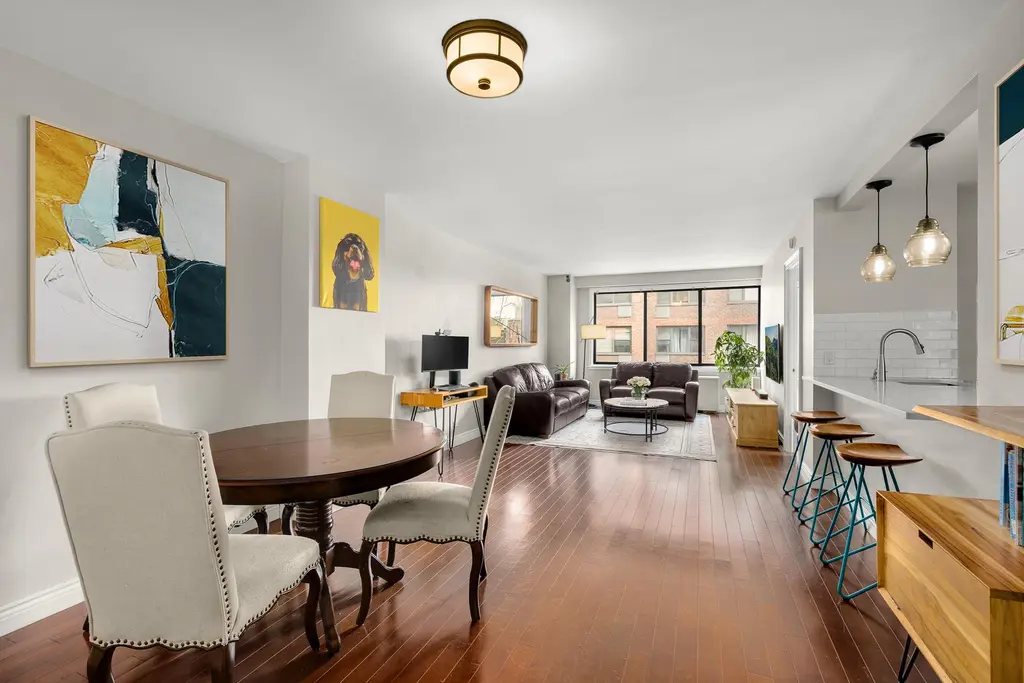
Morad Diplomat, #3B (Douglas Elliman Real Estate)
Tracy Towers, #9G (Compass)
The Sands, #6DE
$774,000 (-6.2%)
Turtle Bay/United Nations | Cooperative | 2 Bedrooms, 2 Baths | 1,100 ft2
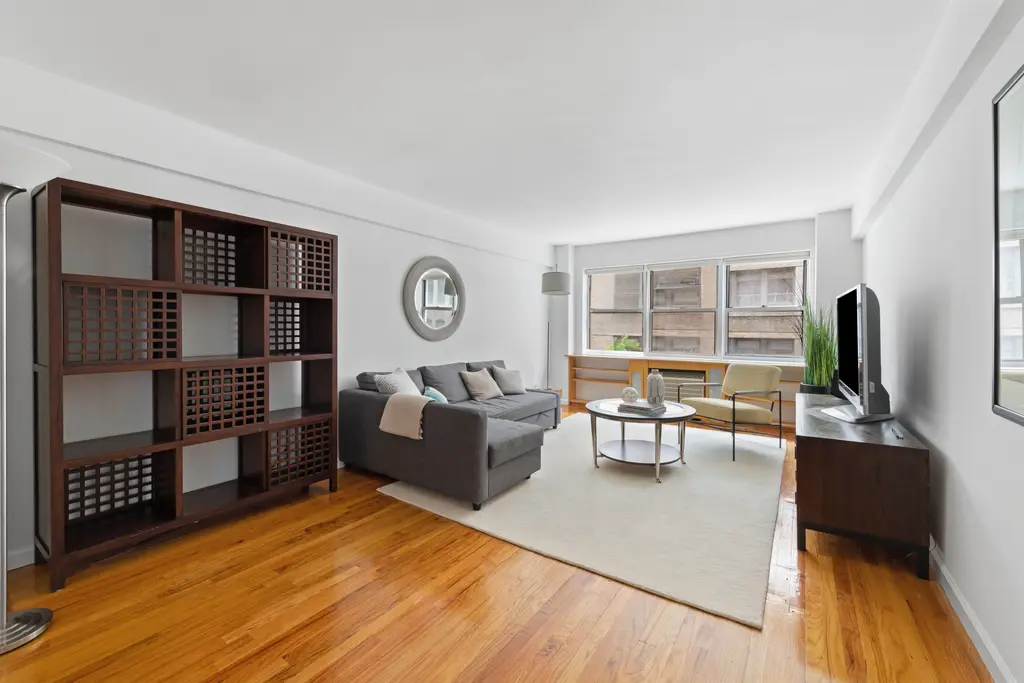
The Sands, #6DE (Level Group Inc)


East River House, #8C (Brown Harris Stevens Residential Sales LLC)
225 East 74th Street, #1F (Corcoran Group)
321 East 12th Street, #12 (Compass)

Tracy Towers, #3G (Douglas Elliman Real Estate)
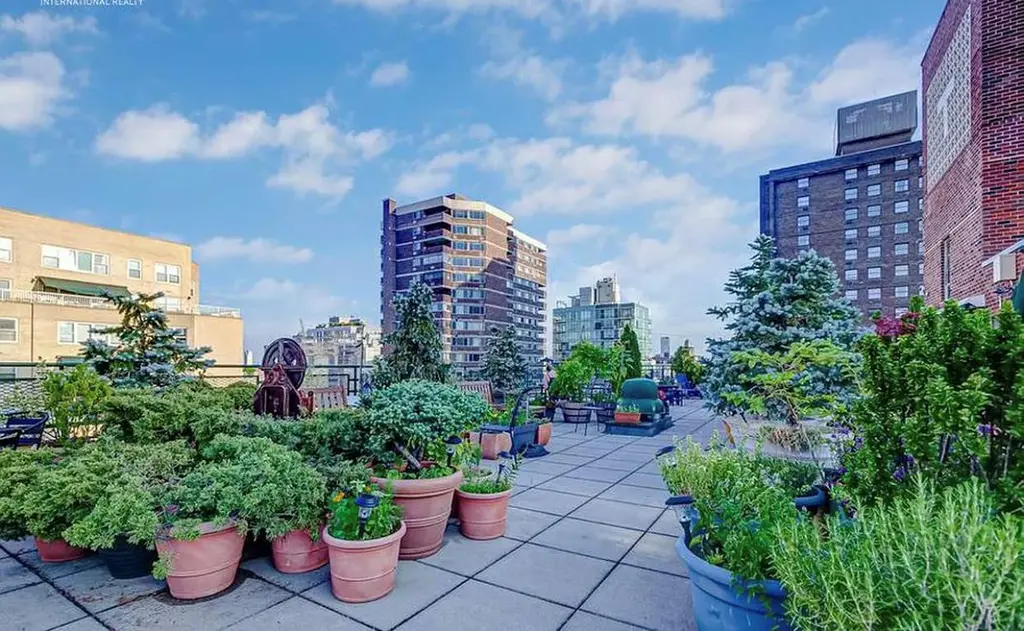
The Cherokee, #1B (Corcoran Group)
332 West 101st Street, #2R
$675,000 (-3.4%)
Riverside Dr./West End Ave. | Cooperative | 2 Bedrooms, 1 Bath
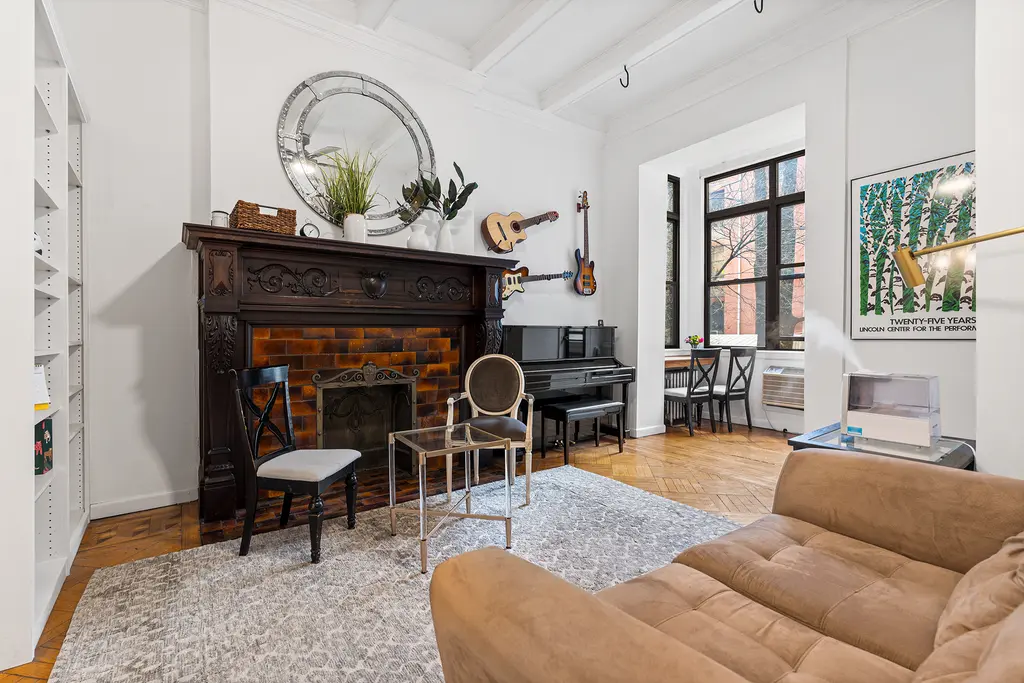
332 West 101st Street, #2R (Redfin Real Estate)
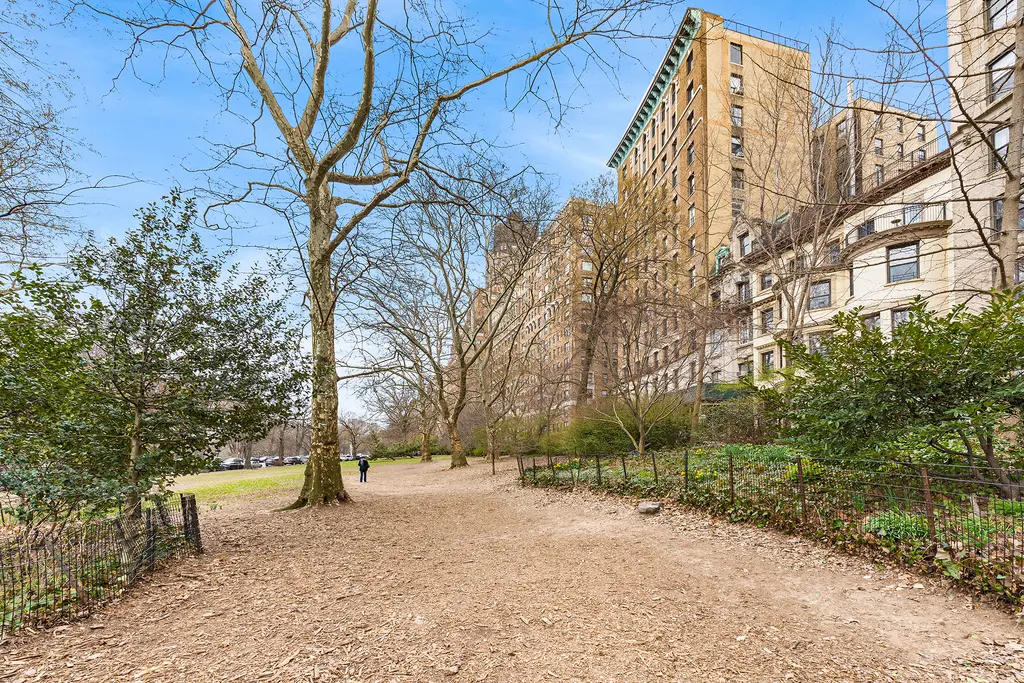
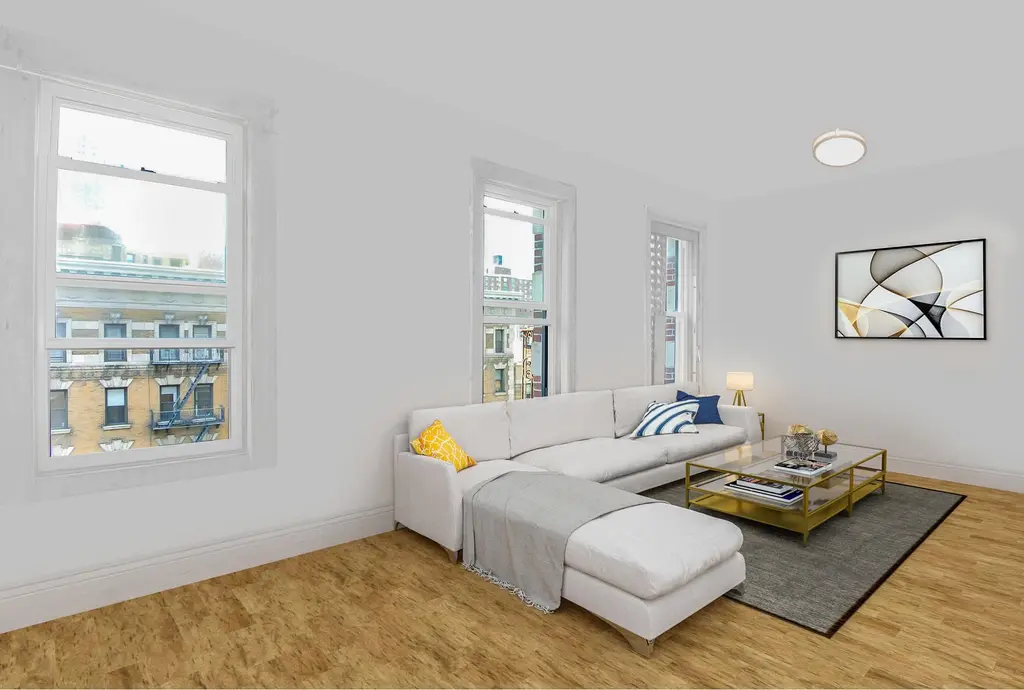
431 West 121st Street, #5C (Douglas Elliman Real Estate)
Would you like to tour any of these properties?
Just complete the info below.
Or call us at (212) 755-5544
Would you like to tour any of these properties?

Contributing Writer
Cait Etherington
Cait Etherington has over twenty years of experience working as a journalist and communications consultant. Her articles and reviews have been published in newspapers and magazines across the United States and internationally. An experienced financial writer, Cait is committed to exposing the human side of stories about contemporary business, banking and workplace relations. She also enjoys writing about trends, lifestyles and real estate in New York City where she lives with her family in a cozy apartment on the twentieth floor of a Manhattan high rise.

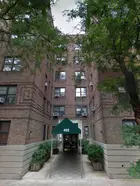

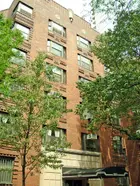


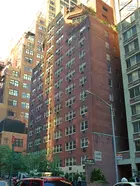
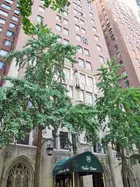

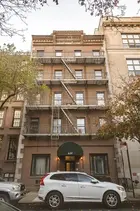

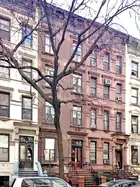





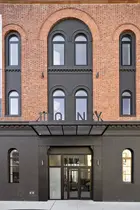
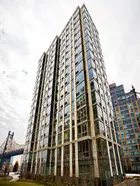
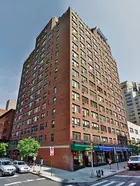

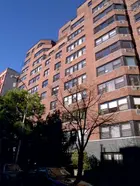
 6sqft delivers the latest on real estate, architecture, and design, straight from New York City.
6sqft delivers the latest on real estate, architecture, and design, straight from New York City.
